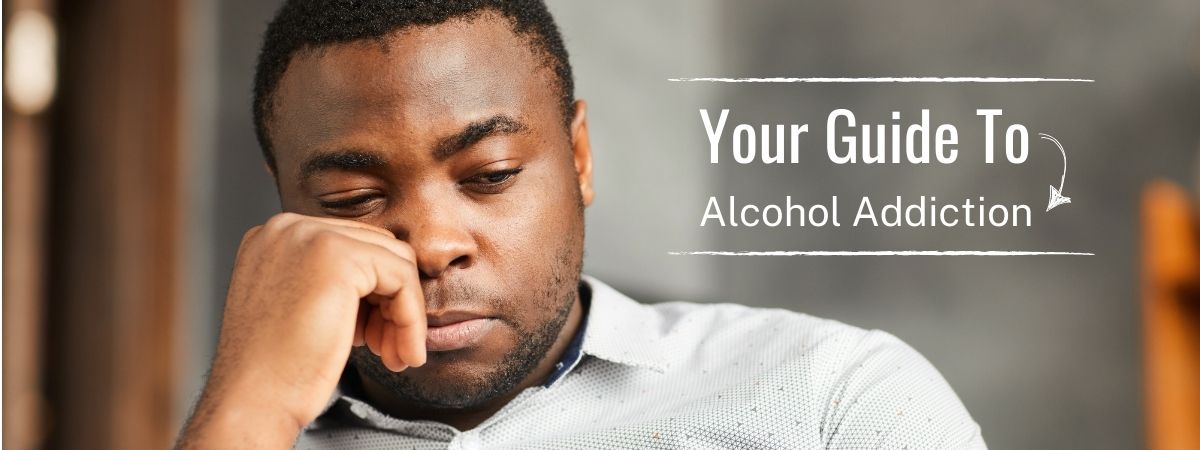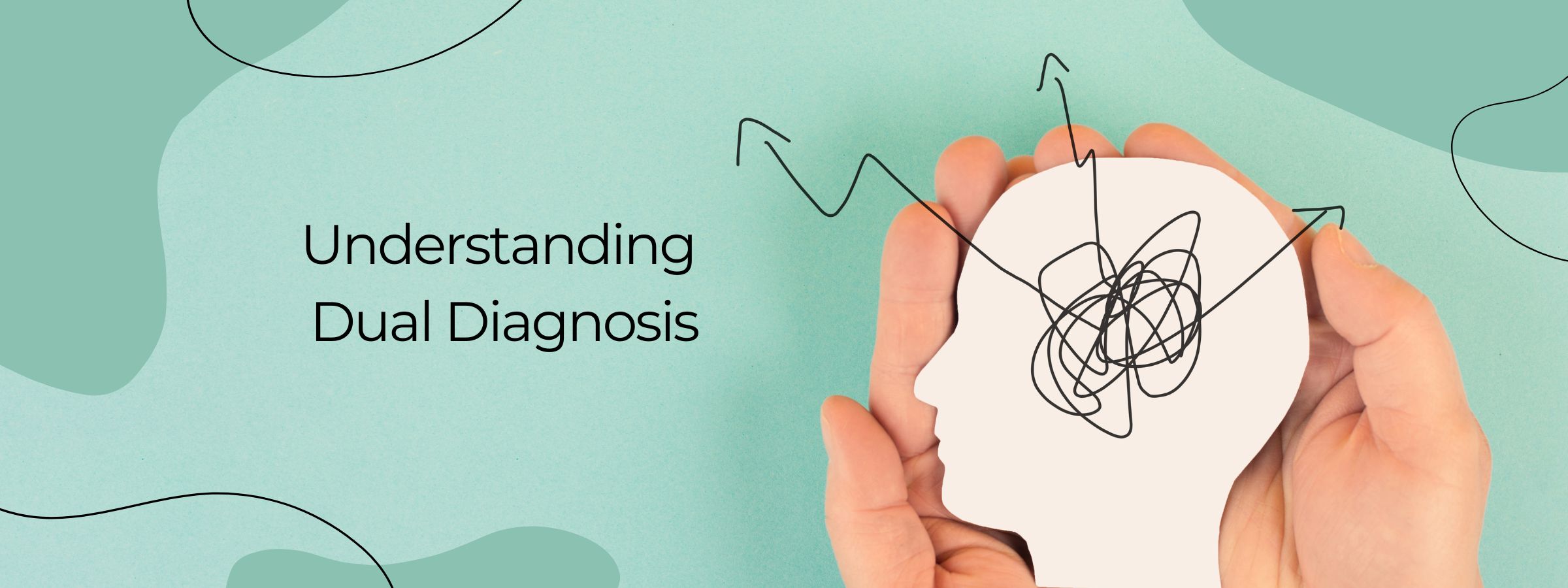What Is Alcohol Use Disorder? Your Guide To Alcohol Addiction
An abundance of people partake in alcoholic refreshments on occasion. But alcohol can become addictive. If you consume alcohol to get through life or cannot manage your drinking, you might have an alcohol use disorder (AUD). This disorder can swifty take over your life and have a detrimental affect on all the things you previously enjoyed.
But there is hope. If you suspect you or a person you care about have alcohol use disorder, care and lasting recovery are possible. Read on to learn more about AUD and what to do if you need support right now.
What Is Alcohol Use Disorder?
Alcohol use disorder is a health condition where you feel the need to drink alcohol despite the negative repercussions of overconsumption. Your brain seeks alcohol’s mind-altering qualities and no longer functions properly without them. AUD can be anywhere from mild to severe. At its severest, you are in danger of overdosing on alcohol with lethal consequences.
When going through AUD, you could develop an alcohol addiction and experience uncomfortable withdrawal symptoms if you cease using. Without skilled support, you can’t keep yourself from drinking alcohol to mitigate the discomfort your body undergoes when you start alcohol detox. If you are able to quit “cold turkey,” you will still need to counter the routine of regular drinking. AUD requires specialized treatment to recover from.
Why Are Some People Burdened By Alcohol Use Disorder?
Lots of people drink, but not all of them develop an alcohol use disorder. Several factors help determine your odds of developing AUD:
- Drinking at a young age
- Core mental health conditions
- Background of trauma
- Inadequate coping mechanisms
- Genetics
- Family history of alcohol addiction
Countless individuals begin binging on alcohol as a result of major stressors. In the absence of positive coping mechanisms, it’s simple to counteract the uncomfortable feelings that emerge from traumatic experiences and mental illness with the brain-altering effects of alcohol. If those feelings come back, you rely on alcohol to shut them down again. You get a temporary reprieve when drinking alcohol.
Regrettably, alcohol is never an answer. When you drink it regularly, you can become dependent on those chemicals to go about life. When you go without them, you feel worse than you did prior and are urged to drink even more. In time, drinking consumes your life and negatively influences your job, relationships, health, pastimes, and finances. When you become ensnared in this endless spiral, you aren’t able to quit drinking without specialized treatment.
What Are Common Alcohol Addiction Symptoms?
Regular drinking doesn’t automatically indicate a disorder. Alcohol usage progresses into a disorder when it starts to interfere with your life. Many negative behaviors linked to drinking can signal an alcohol use disorder.
You may have AUD if you:
- Frequently drink in excess of or longer than you had intended
- Are unable to cease drinking even when wanting to
- Spend a lot of time seeking and drinking alcohol, even when it makes you sick or impedes other activities
- Compulsions are so intense you can’t focus on other things
- Have engaged in unsafe behaviors while drinking alcohol
- Need to drink more than you used to in order to get the sought-after effect
- Have abandoned activities you once enjoyed to make time for drinking
- Persistent drinking despite its impact on loved ones
- Experience withdrawal symptoms when you cease drinking
The more symptoms of AUD you have, the more serious your case is. But any individual who’s displaying signals of alcohol addiction symptoms deserves expert therapy and guidance. You don’t have to confront alcohol use disorder on your own.
What You Need To Know About Alcohol Withdrawal Symptoms
If you have an alcohol addiction, your body must have it to function. If you stop drinking, you become sick. This is called withdrawal.
Alcohol withdrawal symptoms differ for each individual and depend on your level of alcohol use. If you begin to withdrawal, you could face any mix of these symptoms:
- Insomnia
- Shaky hands
- Headache
- Vomiting or nausea
- Sweating
- Feelings of anxiety
- Hallucinations
- Seizures
- Delirium tremens
- Delusions
- Confusion
- Rapid heart rate
- Fever
- Increased blood pressure
Alcohol withdrawal symptoms are a tell-tale indication that you or a loved one has AUD and needs help. Withdrawal is often agonizing and, in rare cases, even deadly if not addressed by medical providers. If an individual close to you| wishes to stop using alcohol but endures withdrawal when they make an attempt, turn to a substance use treatment provider for expert care.
Can Alcohol Addiction Be “Cured”?
Alcohol use disorder and addiction are deemed chronic diseases. Technically speaking, there is no cure. Even so, a long-term recovery is possible. With the proper combination of medical and mental health treatment, you can learn to manage the compulsion to drink and achieve sobriety. It’s a difficult process, but numerous people eventually recover from alcohol use disorder and take back control of their lives.
Starting Alcohol Use Disorder Treatment
No person can achieve sobriety by themselves–and there’s no reason to do so! Seeking alcohol use disorder treatment might be unnerving, but you deserve skilled treatment to help get yourself on a path of lasting sobriety.
Alcohol use recovery might feel more feasible when you perceive it as several steps. There isn’t a single pathway to sobriety. Many people relapse and repeat certain steps multiple times. But it’s important to note, you can get assistance from loved ones and qualified professionals throughout your journey to recovery.
Alcohol detox: Your first step is alcohol detox. While your system eliminates those chemicals, you require medical observation that keeps you safe and relaxed. Whenever you’re set to end your alcohol dependence, enter a residential detox center. You’ll benefit from 24-hour guidance for a week or two as you undergo withdrawal.
Alcohol rehab: After you detox, your mind and body will still yearn for alcohol. You must move forward to residential rehab where medical professionals can assist you in managing post-acute withdrawal. Alcohol rehab focuses on repairing your brain from the influence of alcohol use. You’ll go to a few hours of therapy each day to treat the mental aspects of AUD. You’ll continue in rehab for whatever length of time is right for you.
Outpatient addiction support: Rehab will stabilize you enough to go home, but you will still want ongoing support to keep on a path of sobriety. Don’t exit rehab without joining an outpatient addiction program that provides therapy and medical-assisted treatment. You are able to live at home or in a sober living accommodation, but you still need to engage therapists and a doctor throughout the week.
Sober living: n time, your need for treatment will taper off. Even so, recovery is a life-long undertaking. Tap into the network of addiction specialists, family, and new mentors you have developed to keep up your healthy way of life. Abstain from scenarios that push you to drink. Seek help when you need it. Enduring recovery can be accomplished!
Get Help Today For Alcohol Use Disorder
You don’t need to battle alcohol addiction by yourself. Turn to Sunrise Detox Center to find caring, professional alcohol use disorder treatment. You can contact us at 866-653-7570 or by filling out the following form. One of our team members will reply promptly, regardless of the time or day. Your call is free and private. We’ll get you the support you require now.



